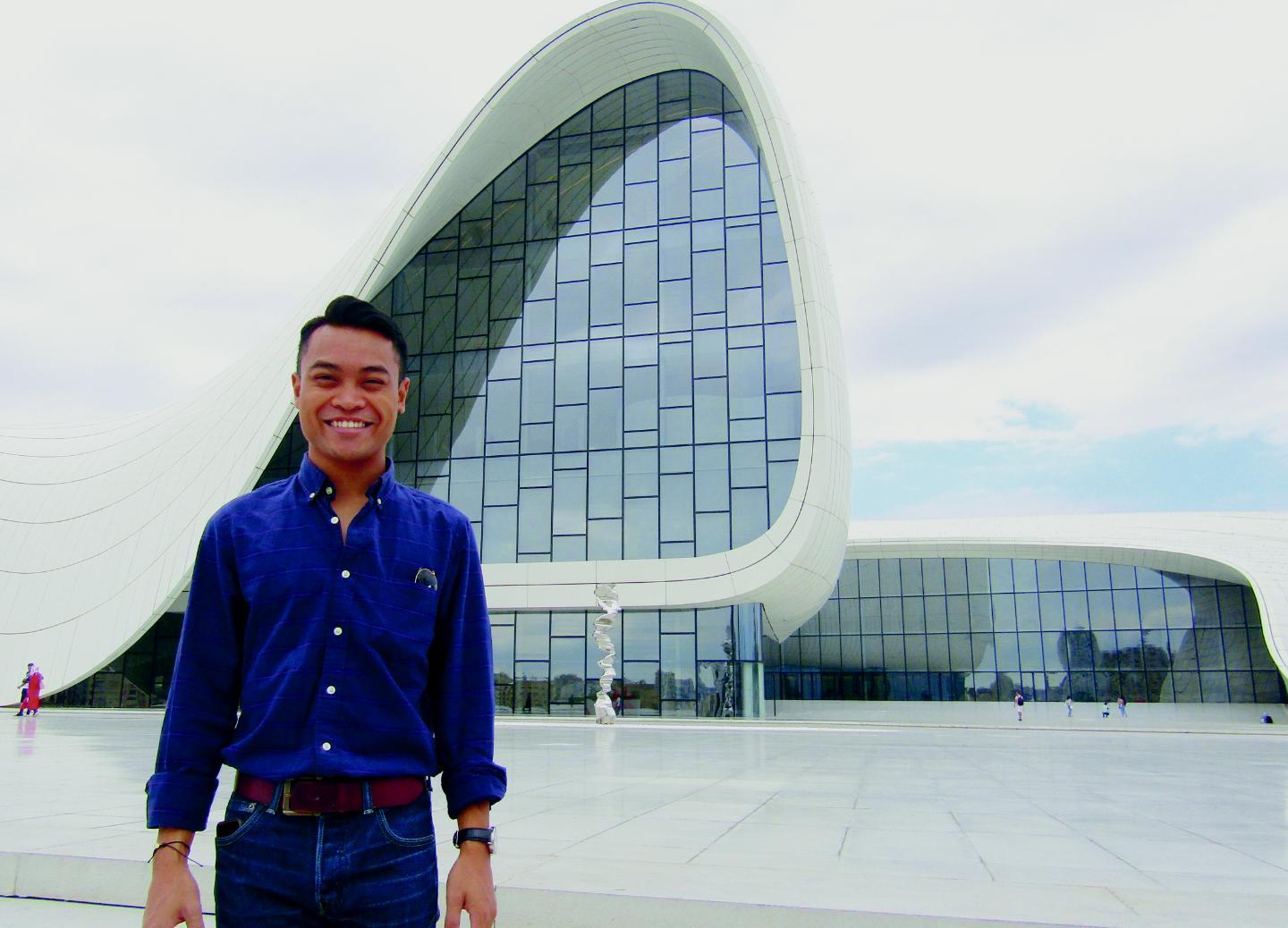World of Experience
Former College Fulbright scholars speak with current recipients about their time abroad.
The Fulbright Scholar Program has named Connecticut College a top producer of Fulbrights six times in the past eight years. Over this period, Conn produced 34 Fulbright scholars, including a College record nine in 2012.
Two recent Fulbrights, Kevin Ith '14, a member of AmeriCorps who is currently in Azerbaijan, and Taryn Kitchen '16, who will study social justice issues in Mexico, learned what to expect from the year abroad by talking to fellow recipients Susan Endel Kerner '67 and Sarah Schoellkopf '97.
Kevin Ith: I think my worries about a year abroad, or an extended trip, is safety. You went to India. I'm in Azerbaijan. Different countries, I know, but how do you navigate those difficulties?
Susan Kerner: I think the world was far different 50 years ago when I went to India. I did end up in some dangerous situations—in the hospital with typhoid, anti-English riots in India—but I tried to be flexible and resilient. Sometimes I think I didn't even realize I was doing something I shouldn't be because of the difference in culture. But it worked out. I'm now a theater professor at Montclair State University.
KI: I'll be teaching high school English in Baku [Azerbaijan's capital]. I originally wanted to teach at a university, but I'm glad for my placement now that I've reflected on it. I'll be teaching in a new Azerbaijan, one that didn't experience the Soviet-era occupancy of its country. I also have a project allowance with my Fulbright grant, and I'm thinking of ways to engage my community and explore cultural identity in Azerbaijan. What were your projects in India?
SK: I majored in English at CC, but I knew I wanted to end up in theater. So, I traveled around India, taking in English-speaking theater! I also directed a play with a local community theater group. And I'm still expanding my scholarship abroad—I work with Chinese university professors who are preparing to teach English to international students around the world. I use theater games and acting exercises in my work, relying less on lecture and more on interaction with students.
SK: Your experience will really shape the kinds of opportunities you have in the future. Once it's over, you're going to want to find ways to replicate it throughout your life. And whatever you do, you'll find ways.
Sarah Schoellkopf: At Conn, I knew I wanted to go abroad. I chose to apply for CISLA [Toor Cummings Center for International Studies and the Liberal Arts]—the only center back then—to focus on international studies. One of my professors, Robert Gay, told me that to combine my sociology and Hispanic studies majors, I should go to Latin America. I had always been intrigued by Argentina and eventually decided to focus my CISLA project on Las Madres de la Plaza de Mayo, a group of Argentine women who lost their children during the country's military dictatorship in the 1970s. I studied abroad for six months in Argentina and then returned for six weeks through my CISLA internship. Then, the Fulbright opportunity came up and this whole new world opened up; it was a time of incredible change in Argentina and I had access to it all. I'm now a Spanish teacher at a school in San Francisco.
Taryn Kitchen: I was a PICA Scholar [Holleran Center Program in Community Action] and focused on immigration advocacy. I think there are a lot of similar situations in Mexico, where human rights issues are prompting more attention and protests. There's still so much that needs to be done. What are you doing now? Is it relevant to your Fulbright experience?
SS: All the research I did was important to my academic career. I received another grant to go to Chile after my Fulbright, then received several grants through the University of California-Berkeley to travel back to Argentina. Since then, I've given lectures around the country about the Madres, I've brought the Madres with me during the lectures, and even brought some of my students to Argentina in 2013. There's this connection to these women that has just grown over the years. So I would say that without my Fulbright year, I wouldn't have my academic career.
TK: I see a lot of similarities about my future goals. You had this pivotal Fulbright year, but it really started with an interest you developed at Conn. Like you, I was initially not on this path; I was thinking about becoming an elementary school teacher. But I took a class on immigration and had the chance to visit the Mexican border during a spring break trip, and it became a life-changing experience. I know now I have to dedicate my life to this work.
SS: My advice to you: sacar el jugo. Squeeze out every drop of juice. Take advantage of everything!
